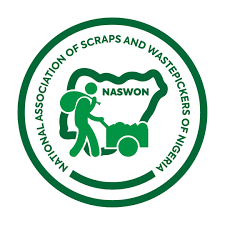Paragraph 1: The Urgent Need for Source Segregation in Lagos State
Lagos State, Nigeria’s largest city, faces a mounting waste management crisis. The sheer volume of waste generated daily poses significant environmental and health risks. Stakeholders, including waste management professionals and environmental advocates, are championing source segregation as a critical solution. Source segregation, the practice of separating waste materials at the point of generation (homes, businesses, etc.), is seen as the cornerstone of achieving a zero-waste future for the city. This approach aims to divert waste from landfills by maximizing recycling, composting, and reuse opportunities. The National Union of Scrap and Waste Workers of Nigeria, along with other organizations like the Global Alliance for Incineration Alternatives, are spearheading initiatives to promote and implement source segregation programs.
Paragraph 2: Economic and Environmental Benefits of Source Segregation
The benefits of source segregation are multifaceted, impacting both the economy and the environment. Economically, it reduces waste disposal costs for the city, creates job opportunities in the recycling and composting sectors, and generates revenue from the sale of recyclable materials. Environmentally, it minimizes pollution, reducing health risks associated with overflowing landfills and uncontrolled waste disposal. A cleaner environment can also boost tourism and other economic activities. Furthermore, successful source segregation programs enhance a city’s reputation for sustainability and responsible waste management, attracting investment and contributing to overall economic growth. Source segregation therefore supports both climate change mitigation and the principles of a circular economy, where resources are reused and recycled rather than discarded.
Paragraph 3: Piloting Zero-Waste Initiatives in Lagos
SRADev Nigeria, a non-governmental organization, is actively involved in piloting zero-waste projects in Lagos, focusing on schools and communities. These pilot projects serve as practical demonstrations of the feasibility and effectiveness of source segregation. They align with the broader goals of the Lagos State government, which is working to close existing landfills due to overcapacity. The zero-waste initiative emphasizes waste reduction at the source, thereby minimizing the need for large disposal sites. Dr. Leslie Adogame, Executive Director of SRADev Nigeria, highlights source segregation as the first and most crucial step in effective waste management. The initiative aims to move away from disposal-focused solutions like incineration towards prevention and resource recovery.
Paragraph 4: Addressing Textile Waste and Promoting Local Solutions
The project also addresses the significant issue of textile waste, particularly in light of the International Day of Zero Waste. Nigeria, a major importer of second-hand clothing, faces a growing problem of discarded textiles ending up in landfills. Many modern textiles contain plastic materials, making them non-biodegradable. SRADev Nigeria advocates for harnessing this textile waste as a local source of refuse-derived fuel (RDF), which can be used in cement kilns and other industrial processes. This approach offers a sustainable alternative to importing RDF from other countries, while simultaneously addressing the local textile waste problem. By promoting local solutions, the project aims to create economic opportunities and reduce reliance on imported resources.
Paragraph 5: Implementing Source Segregation: A Practical Approach
The practical implementation of source segregation involves a comprehensive approach. This includes educating residents, domestic workers, and estate management staff about the importance and methods of waste separation. Providing clearly labeled bins for different waste categories (biodegradable, recyclable, and non-recyclable) is essential. Collaboration with waste management companies ensures regular collection and proper disposal of segregated waste. Partnerships with local recyclers and composting facilities further enhance the system’s effectiveness. Encouraging home composting for organic waste, through training and provision of compost bins, is another key component.
Paragraph 6: Launching the Project and Engaging Stakeholders
The project launch included the unveiling of color-coded waste bins and carts, along with a Black Soldier Fly (BSF) production facility for managing organic waste within a specific housing estate. The BSF facility demonstrates a localized solution for processing organic waste, preventing it from reaching landfills. The project launch event brought together various stakeholders, including representatives from the Lagos Waste Management Authority (LAWMA), the Lagos State Environmental Protection Agency (LASEPA), local government, schools, and waste management trade unions. This collaborative approach underscores the importance of engaging all relevant parties to ensure the successful implementation and long-term sustainability of source segregation initiatives in Lagos State. The project represents a significant step towards achieving a zero-waste future for Lagos, promoting environmental sustainability, and contributing to a more circular economy.














